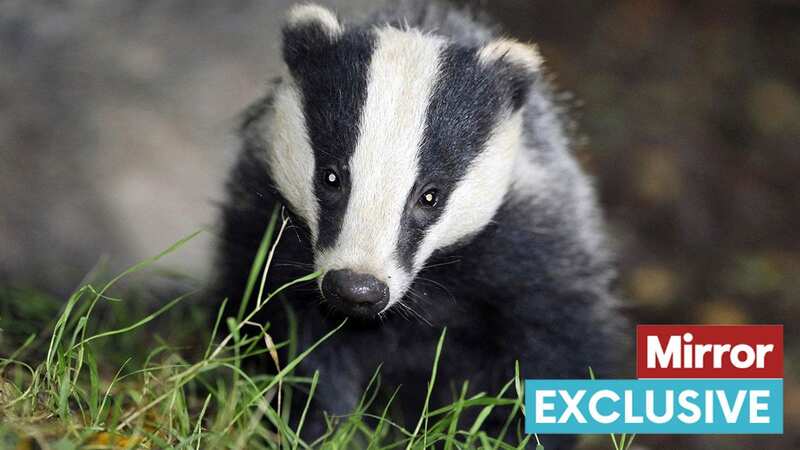Tens of thousands of badgers sentenced to death by the Tories this autumn
Tens of thousands of badgers face being slaughtered this autumn as the Tories press on with their controversial cull.
Guidance issued by the Department for the Environment, Food and Rural Affairs to Natural England recommends killing up to 53,234 of the creatures. Some 208,144 have been killed since 2013 under efforts to curb the spread of tuberculosis in cattle.
If marksmen kill the maximum number authorised by the Government this year, it would mean more than 260,000 of the animals have been sentenced to death over the last decade. Furious animal rights activists blasted the annual programme, warning: “This unscientific onslaught is now pushing badgers to the brink of extinction in long-established cull areas.”
Badger Trust executive director Peter Hambly said: “The local extinction of badgers is happening right here, right now; 260,000 badgers represent over half of Britain’s badger population – there has never been an assault on nature like this over a decade in our history.” The cull is due to take place across swathes of the English countryside.
Documents show the numbers of badgers doomed in Dorset, Cornwall, Devon, Gloucestershire, Herefordshire, Somerset, Staffordshire, Avon, Cheshire, Wiltshire, Derbyshire, Leicestershire, Oxfordshire, Shropshire, Warwickshire, Lincolnshire, Hampshire, Lincolnshire, Berkshire, Buckinghamshire and Northamptonshire. Cull supporters blame badgers for infecting cows with TB.
 Teachers, civil servants and train drivers walk out in biggest strike in decade
Teachers, civil servants and train drivers walk out in biggest strike in decade
More than 38,000 cattle were slaughtered in England and Wales in 2021 to tackle the disease, which costs taxpayers about £100million a year. Opponents want farmers to implement tougher biosecurity measures - and hope a vaccine could eventually end the cull, with campaigners pointing to a jab which could protect cattle.
In February, the Animal and Plant Health Agency said field trials for a cow inoculation and new skin test for bTB had moved to the next phase. Mr Hambly added: “The best way to deal with bTB is through cattle-based measures – enhanced biosecurity, such as restricting cattle movements and effective cattle testing and vaccination.”
National Farmers’ Union deputy president Tom Bradshaw said: “Bovine TB continues to have a huge impact on thousands of farming families across the country and the emotional, mental and financial strain this devastating disease causes is enormous. The current government strategy to control and eradicate bTB, which gives farmers access to multiple measures to tackle the disease, has been successful with reducing disease incidence.”
He added: “It gives farmers, their families and their businesses much-needed relief. As bTB policy evolves, it is vital that this effective strategy maintains wildlife control measures where it is necessary to ensure farms aren’t impacted. We will continue to work with government to ensure a successful strategy to eradicate bTB continues to be based on sound science and evidence.”
A Defra spokeswoman said previously: “Bovine TB is one of the most difficult and intractable animal health challenges the livestock sector in England faces today, causing considerable trauma for farmers and costing taxpayers over £100m every year. We have always been clear that we do not want to continue the current badger cull longer than necessary. Our bovine TB eradication strategy has led to a significant reduction in this insidious disease and building on the progress made we are now able to move onto the next phase, including wider badger vaccination, alongside improved cattle testing and work towards deployment of a cattle vaccine.”
* Follow Mirror Politics on Snapchat, Tiktok, Twitter and Facebook.
Read more similar news:
Comments:
comments powered by Disqus


































